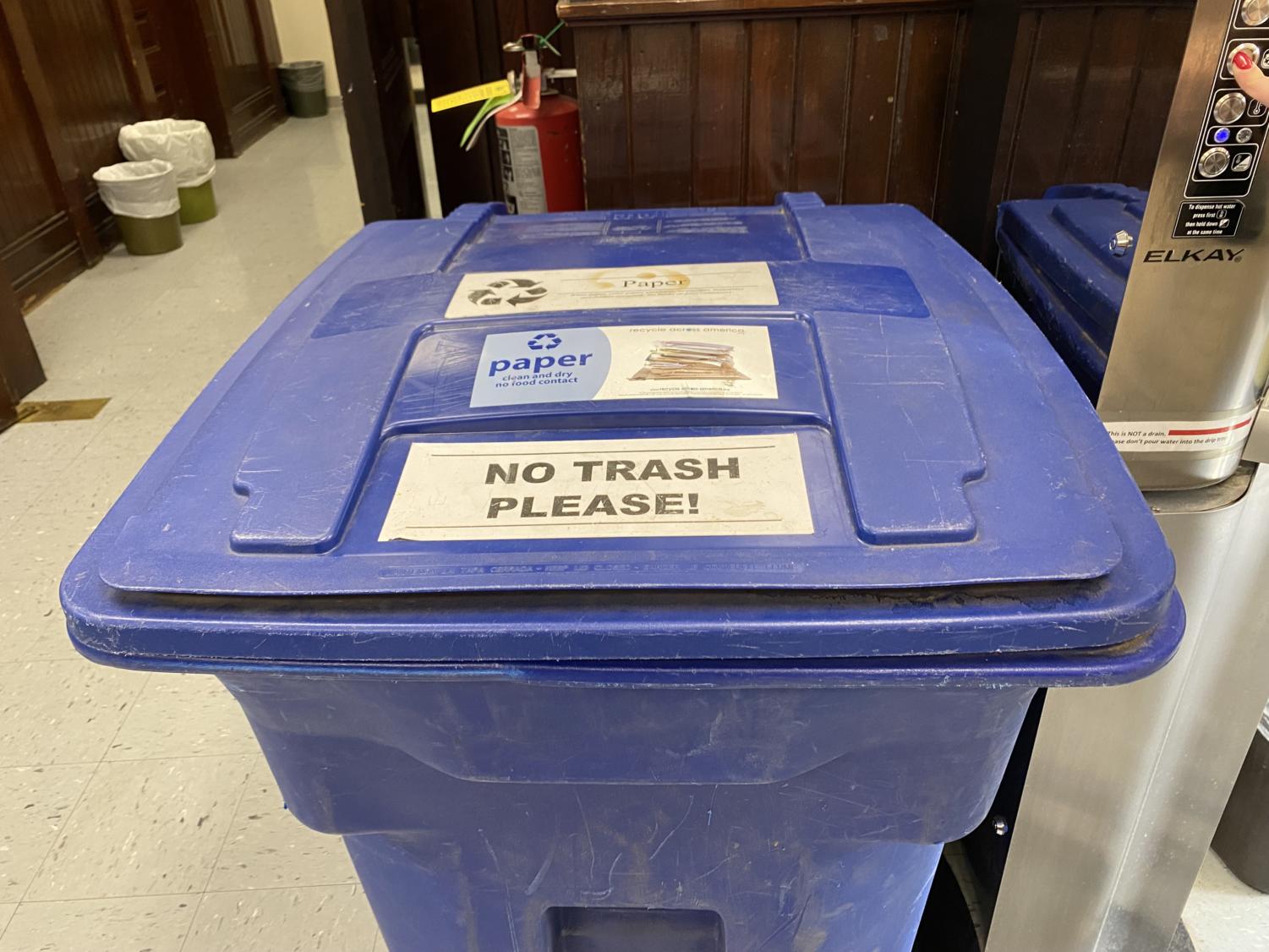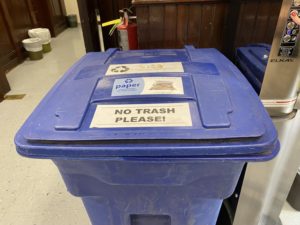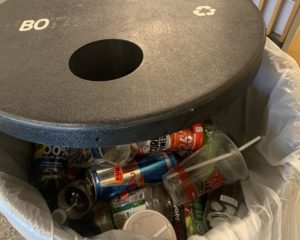On-campus recycling suffers from trash contamination
In late September, Tulane University was awarded $5 million for a project to study how glass recyclables can prevent coastal land loss. The funding is part of a 12-month study and research effort to determine if sand from recycled glass is an optimal, non-toxic substitute to promote local plant growth and resist erosion.
But on-campus, recycling initiatives often prove more difficult.
Sophomore Elena Rubens Goldfarb said she recycles boxes in her dormitory but was not aware of how to recycle glass or other items in locations besides her residence hall.
“I don’t recycle anywhere else on campus besides my dorm,” she said. “It’s not accessible.”
Tulane provides recycling bins in most indoor and outdoor areas. Most residence halls also provide indoor and outdoor recycling stations, according to the university’s Campus Services website. The school provides bottle and can collection containers outside and in popular eating areas. These bins are used to collect plastic bottles, aluminum cans and metal cans.
Many on-campus recycling bins include non-recyclable waste. Several dorm recycling stations examined included liquid-filled red solo cups, glass bottles, plastic-lined coffee cups and used plastic food containers.
When researching for this story, The Tulane Hullabaloo found that nine out of 10 examined recycling bins in the Lavin-Bernick Center for University life contained non-recyclable material. The one without non-recyclable trash was empty.
When asked if workers must recycle on campus, four LBC workers said there is no recycling or trash separation.
“As far as I know, there is no recycling available. At least not at the Stern PJ’s. We are told to take all boxes to the dumpster,” Zoe Dunekack, who works at PJ’s Coffee, said.
Tulane’s partnership with Glass Half Full, a glass recycling company started by two alumni, has brought recycling initiatives to Tulane in the past.
During the 2021-2022 school year they “provided five glass recycling bins next to Aron residences (by the dumpsters on Ben Wiener) and collected the glass to recycle,” Franziska Troutman, co-founder and CEO of Glass Half Full, said in an email. “This was in partnership with RHA. We recycled the glass into sand for coastal restoration, landscaping, disaster relief, and more!”
New Orleans does not recycle glass, and Glass Half Full was founded in response. The city lags behind national recycling norms — almost a third of items at local recycling centers end up in landfills due to contamination by unaccepted materials. The city also recycles at one-tenth of the national average. Students can recycle glass through Glass Half Full.
Tulane’s online list of recycling rules urges students to use their own water bottles and keep reusable silverware on hand. The student initiative “Trash to Treasure” also collects unwanted dormitory items every fall and spring.
Your donation will support the student journalists of Tulane University. Your contribution will allow us to purchase equipment and cover our annual website hosting costs.







